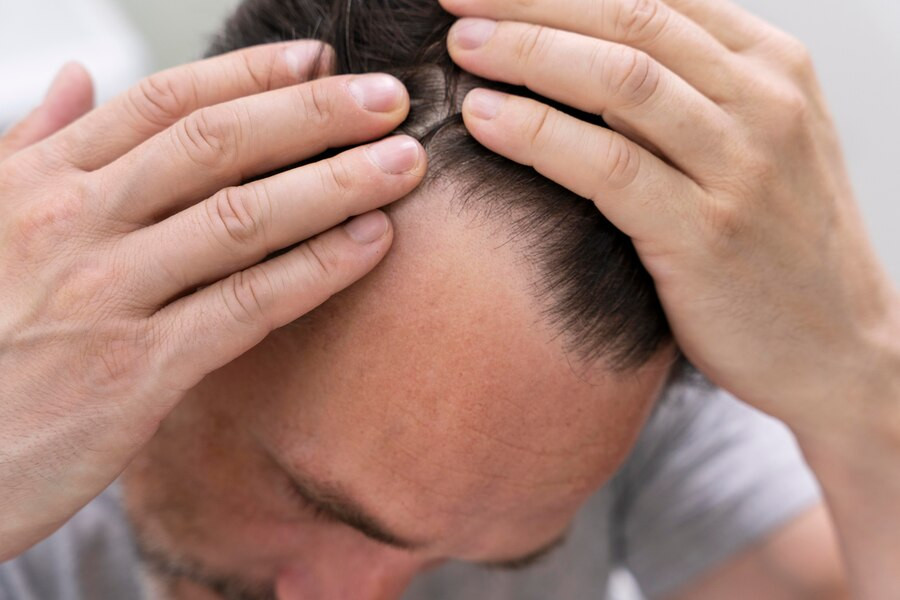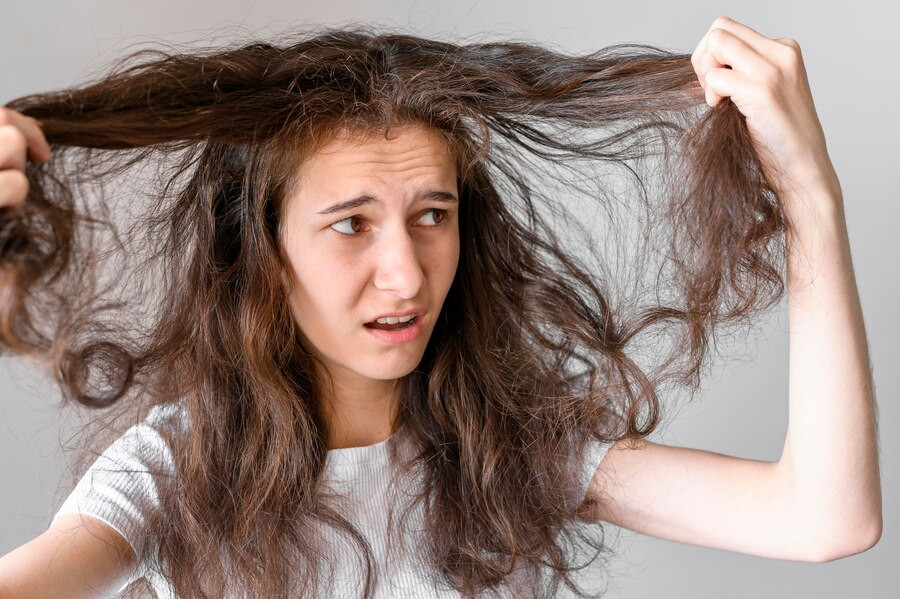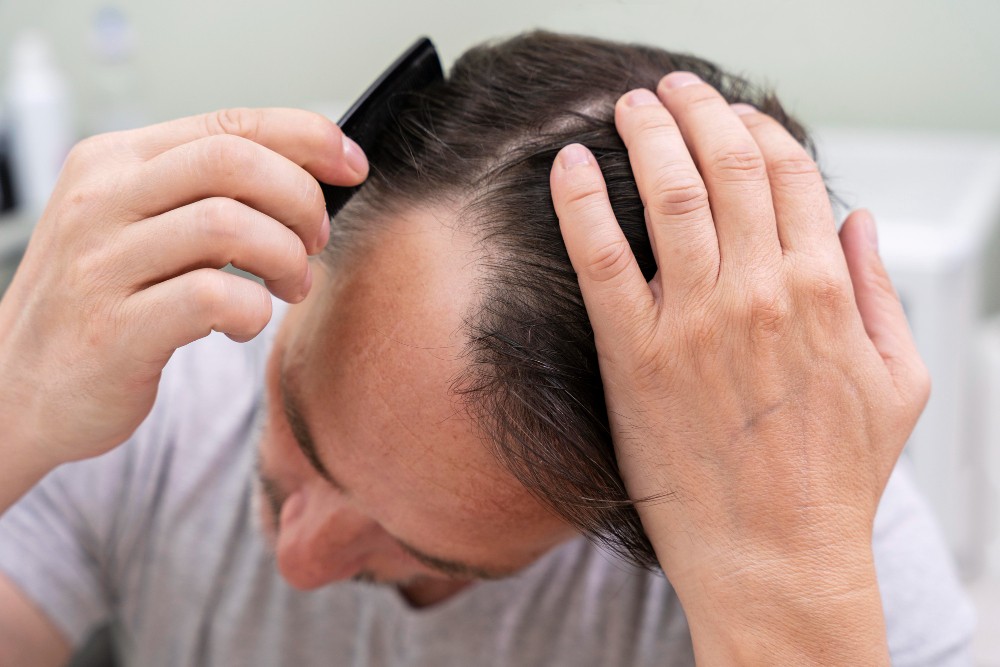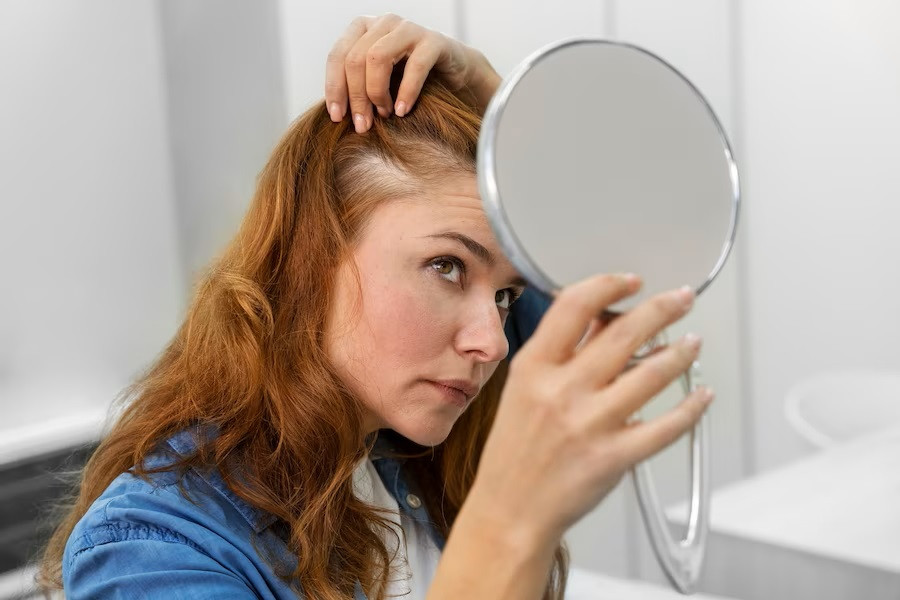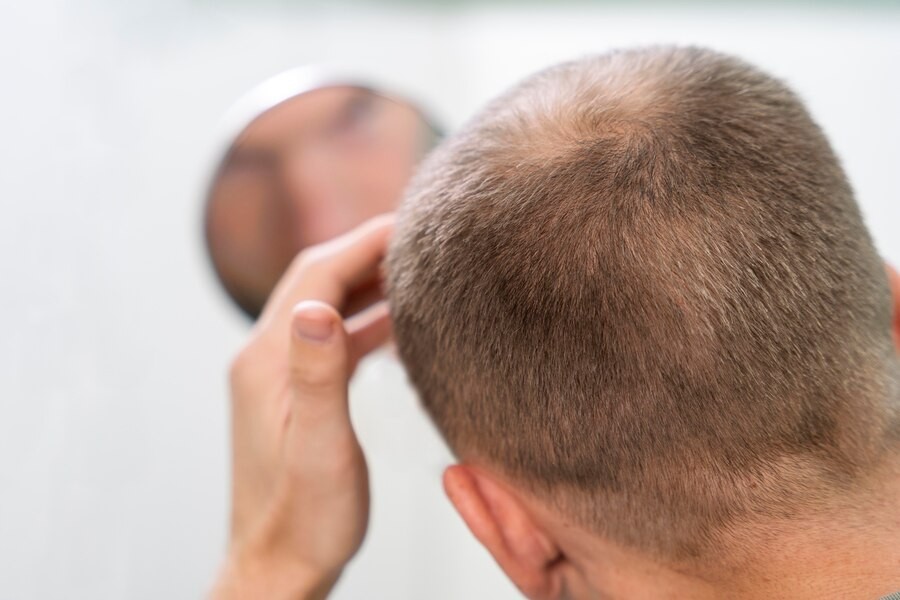Androgenetic alopecia refers to inherited baldness. This condition can affect both men and women and is characterized by gradual hair loss.
Although it does not cause pain, its effect on physical appearance might have an impact on a person's confidence. You have to know how to deal with it, which includes slowing down the balding process and boosting hair growth.
Characteristics of Androgenetic Alopecia
Androgenetic alopecia baldness is easy to identify due to its specific characteristics. In men, hairline receding typically begins in the temple area, forming an M pattern, while in women, receding hairline begins at the top of the middle of the head.
Baldness appears gradually and usually takes years for it to progress. So this isn't a sudden loss of hair.
Read more: Causes Of Hairlines In Dahi Mundur, Is It Really A Sign Of Weakness?
Androgenetic Alopecia Treatment
To treat genetic baldness, the doctor usually starts with a physical examination and inquires about your and your family's medical history. A scalp biopsy and blood testing may be required to rule out hormone imbalances or other potential problems.
There are several treatment and care options available to treat androgenetic alopecia, including:
Administration of medication
Commonly prescribed medications for androgenetic alopecia include finasteride and minoxidil. Typically, minoxidil is administered topically, which means it is applied straight to the scalp. This drug will help slow down hair loss and boost hair follicles.
Meanwhile, finasteride is an oral medicine that works by suppressing the enzyme that transforms testosterone into dihydrotestosterone, preventing hair from growing thinner, finer, and falling out more frequently.
Hair transplant
Hair transplantation is a highly effective treatment for androgenetic alopecia. Hair transplantation offers better long-term results than other therapies, such as medications, which must be taken on constantly.
In addition, hair transplants are usually recommended in a case where topical or oral therapies prove ineffective.
Platelet-rich plasma (PRP) procedure
A non-surgical therapeutic option for baldness or hair loss is PRP therapy. The first step in this process is to take blood from the arm, separate the platelet-rich plasma, and gather the platelet-rich plasma (PRP) to inject into the scalp.
This PRP injection is considered to boost hair follicle cell growth and repair damaged hair follicles. It typically requires several PRP sessions to achieve satisfactory results.
Read more: PRP Therapy: Can It Overcome Rontok And Boboty Hair?
Wearing of wigs
Bald spots can be covered up by styling your hair and wearing a wig. Additionally seen to be more successful is this approach, particularly for people in need of a quick fix and without risk to their health. Hairstyles are also adaptable to certain occasions or everyday requirements. Feel free to switch up your hairdo whenever you like.
Each treatment procedure has both advantages and cons. Its effectiveness is dependent on your condition; therefore, you should visit a doctor first to decide the appropriate treatment for your needs and situation.
If you have any additional inquiries about baldness or hair loss problems, you can either visit a doctor, a psychologist, or make use of the consultation features that are available in the Ai Care application by downloading the Ai Care application from the App Store or Play Store.
Looking for more information about other diseases? Click here!
- dr. Alvidiani Agustina Damanik
Cleveland Clinic (2022). Male Pattern Baldness (Androgenic Alopecia). Available from: https://my.clevelandclinic.org/health/diseases/24515-male-pattern-baldness-androgenic-alopecia
Medline Plus (2023). Androgenetic alopecia. Available from: https://medlineplus.gov/genetics/condition/androgenetic-alopecia/
Harvard Medical School (2024). Treating female pattern hair loss. Available from: https://www.health.harvard.edu/staying-healthy/treating-female-pattern-hair-loss
American Osteopathic College of Dermatology. Androgenetic Alopecia. Available from: https://www.aocd.org/page/AndrogeneticAlopecia
Mayo Clinic (2024). Minoxidil (Topical Route). Available from: https://www.mayoclinic.org/drugs-supplements/minoxidil-topical-route/side-effects/drg-20068750?p=1
Medline Plus (2022). Finasteride. Available from: https://medlineplus.gov/druginfo/meds/a698016.html
Mary Anne Dunkin (2024). Hair Transplants: What to Expect. Available from: https://www.webmd.com/skin-problems-and-treatments/hair-loss/hair-transplants

